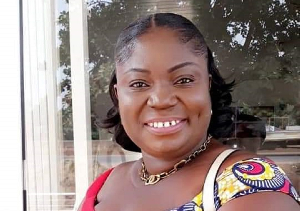- Home - News
- TWI News | TV
- Polls
- Year In Review
- News Archive
- Crime & Punishment
- Politics
- Regional
- Editorial
- Health
- Ghanaians Abroad
- Tabloid
- Africa
- Religion
- Election 2020
- Coronavirus
- News Videos | TV
- Photo Archives
- News Headlines
- Press Release
Opinions of Wednesday, 3 October 2018
Columnist: ghananewsagency.org
Every patient in the hospital deserves a voice
Going to the hospital in Ghana is a nightmare, I told a doctor, and I hate hospitals for the fact that usually the patient, I chose to call them clients voice is drowned in the whole process of diagnoses and treatment.
It seems to me that sometimes the doctors are themselves confused as to what treatment plan to use in treating certain kinds of illness and in a bid to present themselves as superior and all-knowing tend to frustrate their clients even the more
The saying “If you cannot convince them, confuse them” is usually demonstrated in a hospital setting most of the time and I think the patient charter which many ordinary Ghanaians do not know about anyway is always thrown to the dogs.
In my opinion, if you really want to see people being threatened in the real sense of the word go to a hospital with a child who has cerebral palsy. Usually parents’ opinions are seen as obstructing the medical process as one nurse told me.
That is why the People for Health Programme is welcomed news to me - a lot of abuse occurs in our hospitals in Ghana but who do you report to, has been a lingering question on my mind for years.
And should you be able to report through their suggestion box, how sure are you that anybody will pay attention to you, sometimes, the fear of being a victim in the hospital will let common sense tell you to “shut up” instead of speaking up.
A woman told me her daughter was having a high temperature, being a pharmacist herself, she administered paracetamol and proceeded to the hospital with the child.
Upon reaching the hospital, the nurses check the child’s temperature and decide to give the child paracetamol while she waits to see a doctor.
The woman explained to the nurse that she had already given paracetamol just before they came to the hospital and the medicine should be given at a four-hour interval that there could be a problem with an overdose.
For doing that, she was left unattended to for hours. After the interminable wait, she decided to enquire why nobody had attended to her child, the nurse said: “It seems you already know what to do, that is why we have left you, if you can attend to your child, why did you bring her”.
In the Ghanaian hospital setting, a patient or client is supposed to be mute, you cannot talk or else you face victimization.
The Peop
le for Health project is aimed at reducing inequities in the delivery of health services through the promotion of good governance practices of accountability, transparency, equity and participation.
People for Health empowers the ordinary Ghanaian to voice out their concerns with regards to service delivery in the health sector by providing a platform for clients to report issues of concern that needs to be addressed.
“People for Health (P4H),” is ensuring improved access to quality health service delivery for citizens in 20 districts selected from four regions.
The P4H project seeks to strengthen organisational and institutional capacities of government and civil society organisations (CSOs) for mutual accountability in health, HIV, water, sanitation and hygiene, family planning and nutrition policy formulation and implementation.
The five-year project- March 2016- March 2021 is being implemented by a consortium of three organisations led by SEND-Ghana, a non-governmental organisation (NGO), with Penplusbytes another NGO and the Ghana News Agency as partners, and sponsored by the United States Agency for International Development (USAID).
The target regions include Greater Accra, Eastern, Northern and Volta while the districts comprised Karaga, Central Gonja and Yendi Municipality.
Mr Siapha Kamara, Chief of Party of the P4H Project, said the goal was to leverage opportunities for change, building on consortium members’ existing good relations with local government, District Health Management Teams and the USAID ongoing initiatives in the health sector.
He said consortium members would work to increase citizens’ voices to demand and champion improved access to quality health services.
The project hopes to improve inclusiveness and equity, helping to make the country a model for a health system which serves the people according to their needs.
Effective monitoring in the health facilities would ensure good management for increasing efficiency and effectiveness of health services.
After going through the health fair organized by Penplusbytes last Thursday, I said to them, I wish this project huge success such that it would be scaled up to cover the whole country because seriously the patients or clients of every hospital in Ghana deserves a voice.











